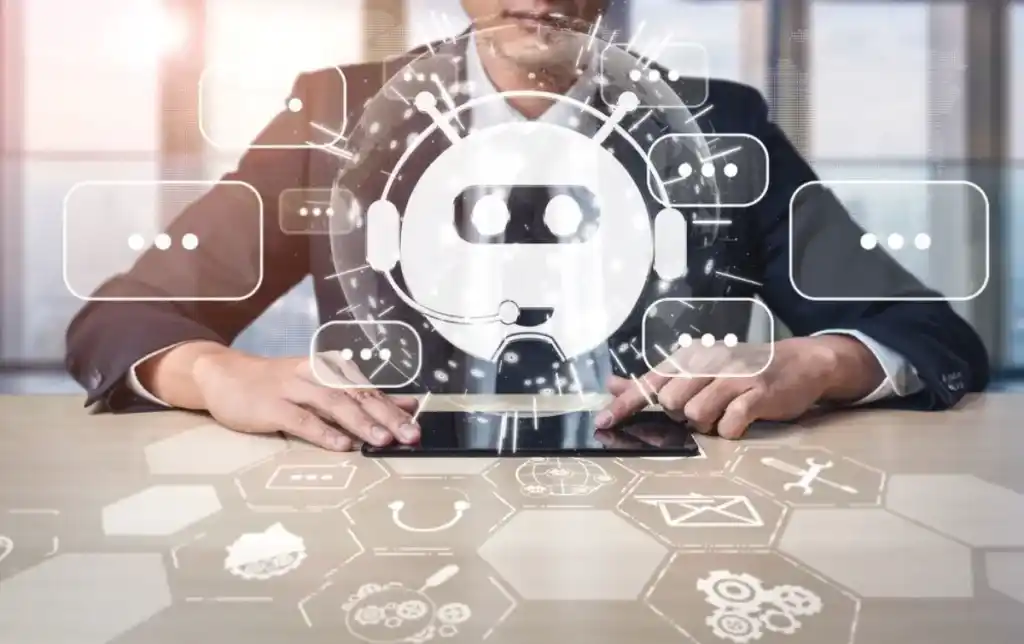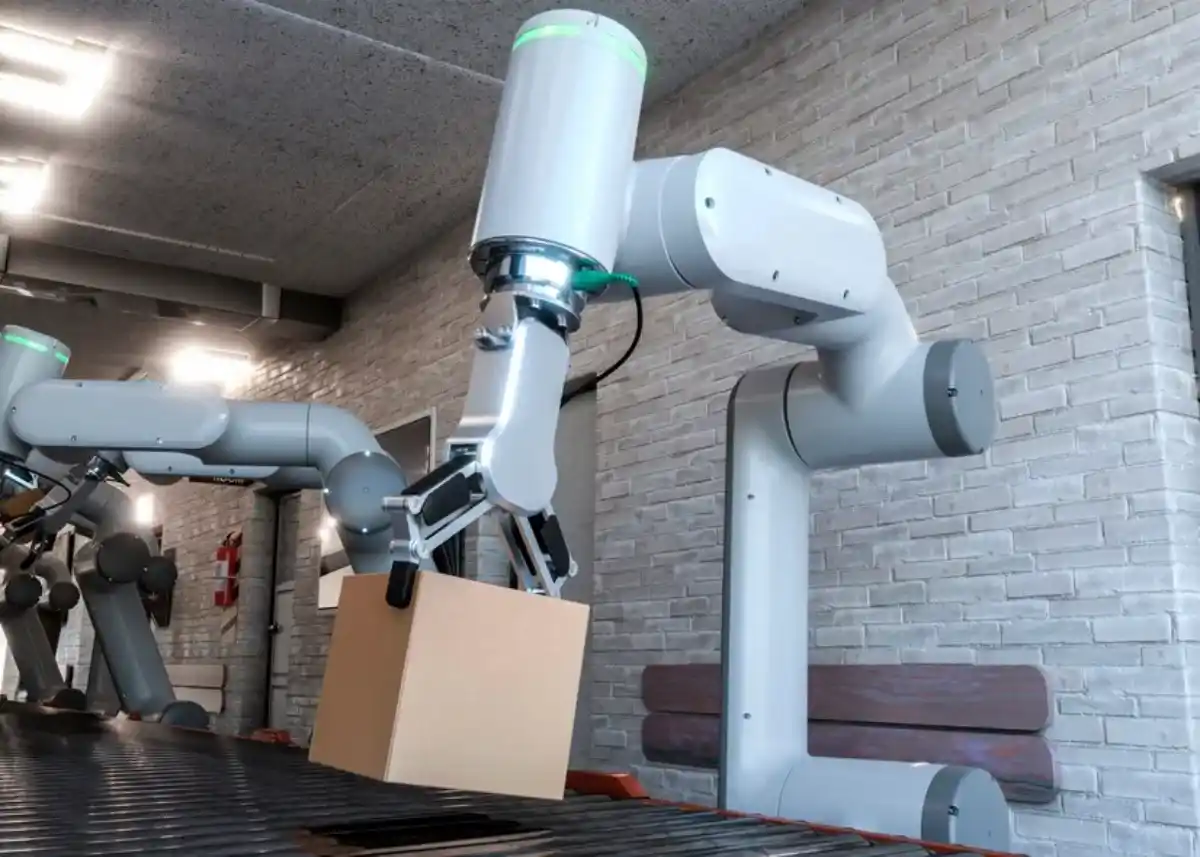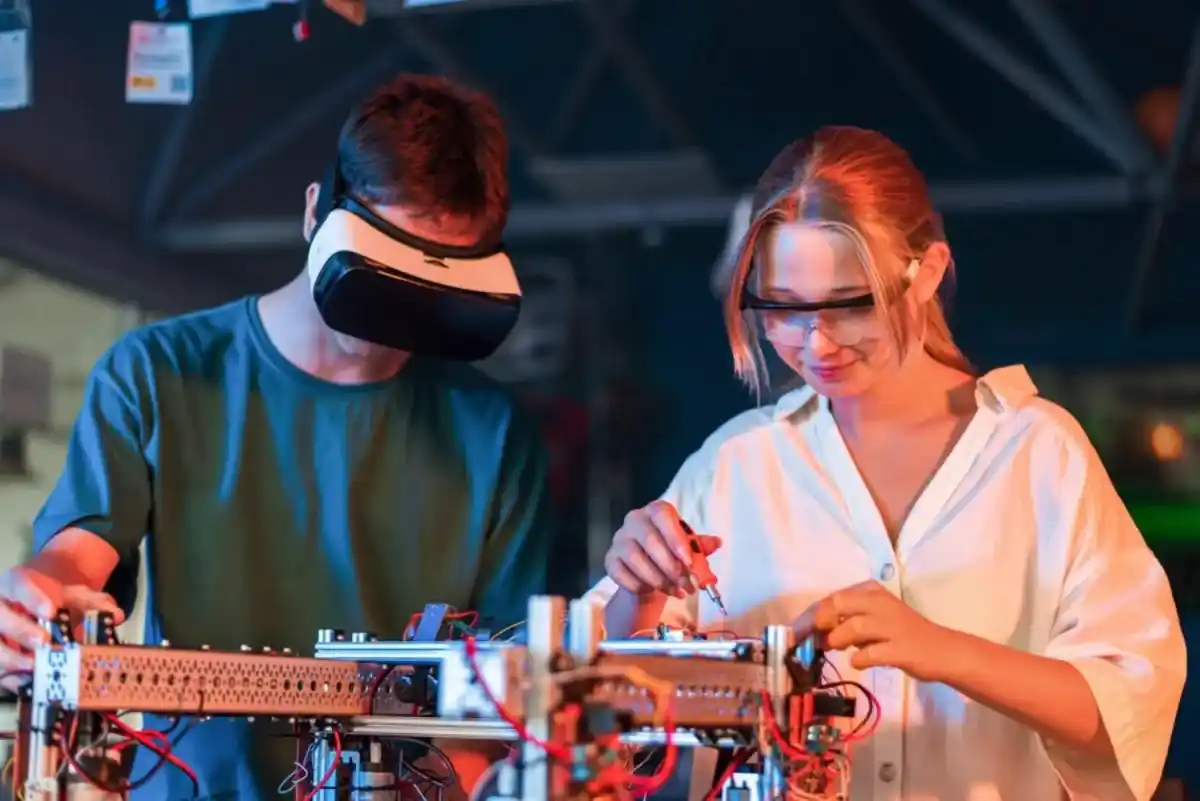The Technology Blog

The Role of AI in Job Automation & The Future of Work
AI is advancing quickly. It’s changing industries everywhere and altering jobs and productivity. As businesses adopt AI technologies, the effects of job automation on workers are clear. AI boosts efficiency, but it raises worries about job loss. People must adapt, and we need to think about the future of employment.
In the UK, companies in different sectors are using AI in the workplace. They aim to make operations smoother, enhance customer experience, and cut costs. This article looks at how AI changes job roles. It discusses the challenges and opportunities AI brings. Finally, it considers the future of work in an AI-driven economy.

The Rise of AI Job Automation
AI is revolutionising workplaces by automating tasks that were traditionally performed by humans. AI job automation boosts productivity and cuts down on human error. It ranges from customer service chatbots to self-learning algorithms in financial forecasting.
Key Industries Affected by AI
The impact of AI in the workplace varies across industries, with some sectors experiencing a more significant transformation than others. Here are some of the most affected industries:
- Manufacturing – AI robots now run assembly lines, check quality, and do predictive maintenance. This cuts down the need for manual labor.
- Retail & Customer Service – AI chatbots and virtual assistants handle customer interactions. They make e-commerce smoother and personalise shopping experiences.
- Finance & Banking – Machine learning algorithms automate fraud detection, risk assessment, and trading strategies. This boosts decision-making efficiency.
- Healthcare – AI helps with diagnostics, drug discovery, and robotic surgery. This reduces the need for human work in routine tasks.
- Transportation & Logistics – Self-driving vehicles, automated warehouses, and smart supply chains cut down on the need for human drivers and warehouse workers.

Opportunities and Benefits of AI in the Workplace
AI in the workplace has many benefits. It can boost productivity, save costs, and create new jobs. Despite worries about job loss, these advantages are significant. Here’s how AI is positively shaping the workforce:
Enhanced Productivity and Efficiency
AI takes over boring and repetitive tasks, letting employees spend more time on strategic and creative work. This increases efficiency and reduces errors, ultimately benefiting businesses and consumers alike.
Job Creation in Emerging Fields
AI removes some jobs, but it also creates demand for new skills and job opportunities. The rise of AI has led to an increased need for:
- AI specialists and data scientists
- Cybersecurity experts
- AI ethics consultants
- Robotics engineers
- AI-driven business strategists
Improved Workplace Safety
AI takes on dangerous jobs, which reduces workplace injuries and leads to safer conditions, especially in fields like construction, mining, and manufacturing.
Better Decision-Making
AI-driven data analytics helps businesses gain insights. This leads to better decision-making and smarter strategic planning. From marketing campaigns to financial investments, AI enhances business intelligence.
Challenges of AI Job Automation
AI increases efficiency and growth. However, it brings challenges for workers and businesses. The future of employment is being reshaped, requiring organisations and employees to adapt.
Job Displacement Concerns
A big worry about AI job automation is the chance of losing jobs. Many jobs, especially those with repetitive tasks, could be replaced by AI systems. Examples include:
- Call centre representatives are replaced by AI-powered chatbots
- Administrative roles were taken over by AI-driven automation tools
- Delivery drivers replaced by autonomous vehicles
Skill Gaps and Workforce Adaptation
As AI evolves, employees must upskill to remain relevant in the job market. Traditional skills might fade away, so digital literacy, coding, and data analysis will be key for future jobs.
Ethical and Privacy Concerns
AI systems use large amounts of data, which raises concerns about privacy, security, and ethics. Companies must ensure responsible AI usage to avoid bias, discrimination, and privacy violations.
Dependence on AI and Job Redefinition
As AI is used more in daily business tasks, relying too much on it can make jobs less skilled. Employees may lose problem-solving and critical-thinking skills if AI takes over decision-making responsibilities.
How Businesses and Employees Can Adapt
Both businesses and employees need to adapt and develop skills for AI in the workplace. This will help create a balanced approach.
Reskilling and Upskilling
Companies should invest in training programs to equip employees with relevant skills, including:
- AI literacy and programming
- Data analysis and interpretation
- Critical thinking and problem-solving
- Soft skills such as creativity, adaptability, and leadership
Encouraging Human-AI Collaboration
Instead of seeing AI as a job threat, businesses should use it to support human work. AI takes care of repetitive tasks. Meanwhile, employees focus on jobs needing emotional intelligence, creativity, and people skills.
Policy and Regulatory Measures
Governments and regulators need to set rules to handle the effects of AI job automation. This includes:
- Ensuring fair wages and job security for employees affected by automation
- Encouraging AI-driven job creation through tax incentives and support programs
- Regulating ethical AI usage to prevent bias and ensure transparency
The Role of Education in Preparing Future Generations
Educational institutions should update curriculums to reflect the changing job market. Focusing on STEM skills, coding, and AI will help workers stay competitive in a world driven by AI.

The Future of Employment in an AI-Driven World
The future of employment isn’t just about losing jobs. It’s also about change. AI will keep changing job roles. Employees must adapt, learn continuously, and embrace new technology. Some emerging trends include:
Rise of Hybrid Work Models
AI will make work more flexible. Employees can work from home or in a hybrid setup. This change helps improve work-life balance and boosts efficiency.
New Career Paths and Job Specialisations
AI will create new jobs we can’t yet imagine. Examples include AI auditors, automation ethicists, and machine learning trainers.
Increased Demand for AI Governance Roles
As AI grows, businesses will need experts in AI ethics, regulation, and compliance. These professionals will help ensure responsible AI use.
Collaboration Between AI and Human Intelligence
AI is not expected to replace all jobs. The future workplace will be a place where AI and humans work together easily. AI handles routine tasks, allowing employees to focus on innovation, strategy, and personal connections.
Embracing AI: Adapting, Innovating, and Thriving in the Future of Work
AI is undeniably reshaping the modern workplace, offering both opportunities and challenges. AI job automation worries some people about job loss. But it also opens up new chances for jobs, better efficiency, and fresh ideas. The future of employment relies on how businesses, governments, and people adjust to AI changes.
Investing in education, reskilling, and ethical AI use helps organisations. This way, AI boosts productivity and creates new, meaningful jobs. To thrive in an AI-driven economy, embrace change. Get ready for the shifting job market.









